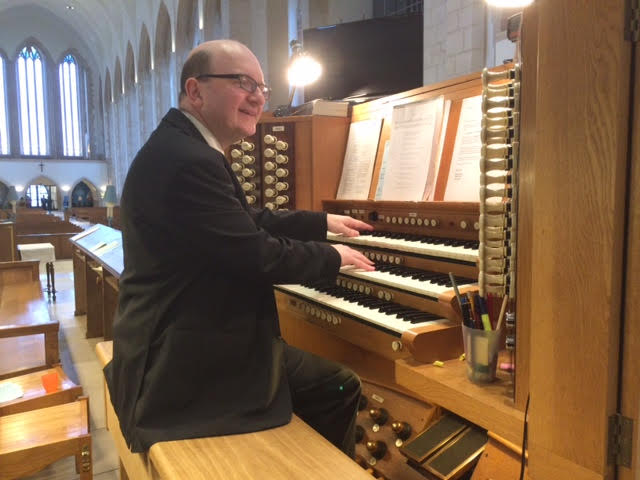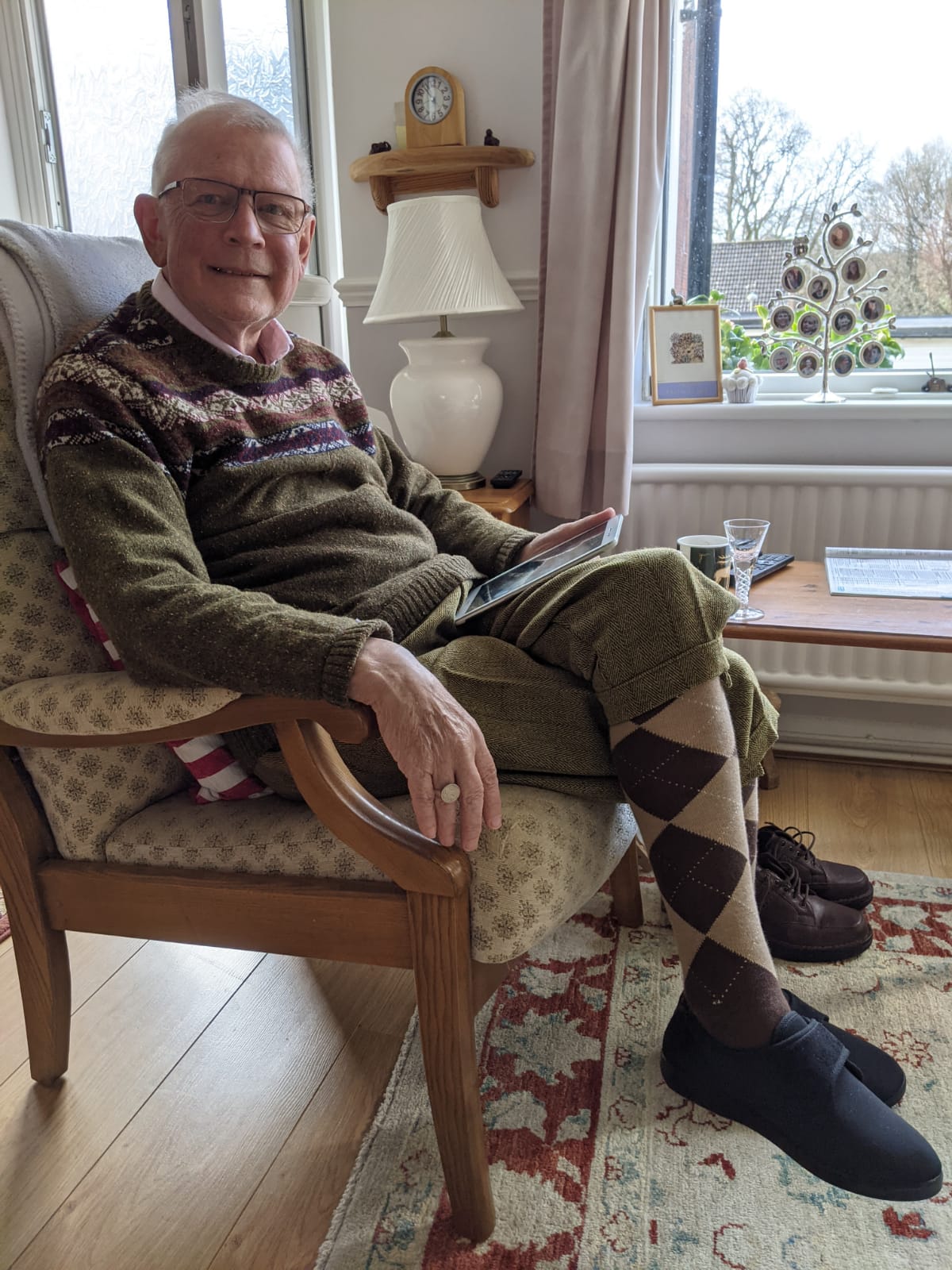Founded in 2012 by Dr Brian Hick the site hopes to include reviews of concerts, recitals and events across the land and with a section highlighting music in 1066 Country. Here you will find professional reviews as quickly as we can get them to you - and far quicker than most published papers or magazines.
All of our reviews or criticism come from those who have a professional standing within the music and arts industry and continue to write for national and international publications. Feel secure that what you are reading is based on many years experience and expertise within the field of professional music and the arts.
Editor, Stephen Page
Stephen Page has reviewed for Lark for a number of years and is now regularly assisting with editorial work. He is a very active professional organist, pianist and singer. As well as solo work he accompanies a number of local singers and works with church and community choirs as well as a variety of other groups.
He is particularly interested in organ and church music, novelty and light piano music and electronic, experimental and other contemporary music, links between music, spirituality and wellbeing…oh, and Doctor Who!
For several years Stephen worked alongside Brian Hick, who founded this website and who handed over to him at the beginning of 2021.
Assistant Editor, Susan Elkin
Susan Elkin has been listening to, and making, classical music all her life although day jobs meant 36 years of teaching secondary English and an ongoing career as an author and journalist. Susan started violin at age 7 and plays in two amateur orchestras. She has also sung most of the mainstream choral repertoire as an alto chorus member. Quirky fact: Susan saw Igor Stravinksy, 83, conduct Firebird in the Royal Festival Hall in 1965.
REVIEWERS
William Hale has been singing in choirs of all shapes and sizes for more than thirty years, with occasional forays onto the stage. He has a large collection of vocal scores of obscure Victorian choral works, and is working on a bibliography of the English Christmas carol. He is not expecting to be able to give up his day job in the Rare Books Department of Cambridge University Library any time soon.
William Hale
Lucas Elkin is originally from Kent. He started learning the violin at the age of six, later winning a place at Kent Music School followed by a music scholarship to King’s School Rochester. His later studies have included composition, arranging and conducting, and he regularly directs choirs, orchestras and musical theatre companies in the Cambridge region. He has attended more performances of one sort or another at all levels of the musical ladder than he would care to guess at, and still somehow finds time to manage a day job running an electrical company.
Lucas Elkin
Jeni Whittaker is a writer and a theatre practitioner with a strong bias towards music. The combination of drama and music has resulted in successful medieval Christmases in stately homes. She has run community and performance-based choirs and accompanied instrumentalists ranging from jazz to classical. In her own medieval and Tudor/Elizabethan concerts she is often a soloist with lutenist Ben Salfield and others. Jeni plays piano, oboe and the whole range of recorders.
Jeni Whittaker
Jonathan Watts was born and brought up in Southampton and came from a musical family. Educated at a local grammar school, he was awarded a Southampton Exhibition to read Modern History at the Queen’s College Oxford where he was a choral scholar. From 1974 to 2012 he worked as a teacher, most recently at Benenden where he became the school’s first male housemistress in 1993. Jonathan studied the piano from the age of six and played the double-bass in the Southampton Youth Orchestra and various ensembles at Oxford often conducted by undergraduates who would later carve, out distinguished musical careers for themselves – figures such as Jane Glover, Nicholas Cleobury, Stephen Oliver, Peter Robinson and Philip Wilby. Whilepressure of work necessitated some reduction in his musical commitments, he continued to be involved in choirs and orchestral ensembles, most notably the Renaissance Music Group of Liverpool and various groups led by the inspirational Directors of Music at Benenden, Michael Purton, Stephen Threlfall and Stuart Beer. Since retirement, he has been a member of a number of church choirs and chamber choirs specialising in early music.
Jonathan Watts
Founder, Dr Brian Hick
Brian started writing as a freelance journalist in 1973, with local papers in Surrey and South London.
He was Editor of The Organ for 15 years, Deputy Editor of Musical Opinion and wrote a weekly column for Hastings Observer.
He set up this website “to bring local reviews and a spread of national events to more immediate notice”, realising the benefits of being able to publish much more quickly online than in the magazines and journals that often appear monthly or quarterly. The associated Lark Press has published a number of titles relating to music and poetry in the 1066 area.
Brian was known for his enthusiastic promotion of a range of musical activity. His reviews were welcomed by many as being fair and balanced. Despite being a critic he made many friends - individual musicians and those associated with various musical bodies. They appreciated his commitment to promoting quality music whether professional or amateur, both in the local area here and further afield. He died in 2021.




